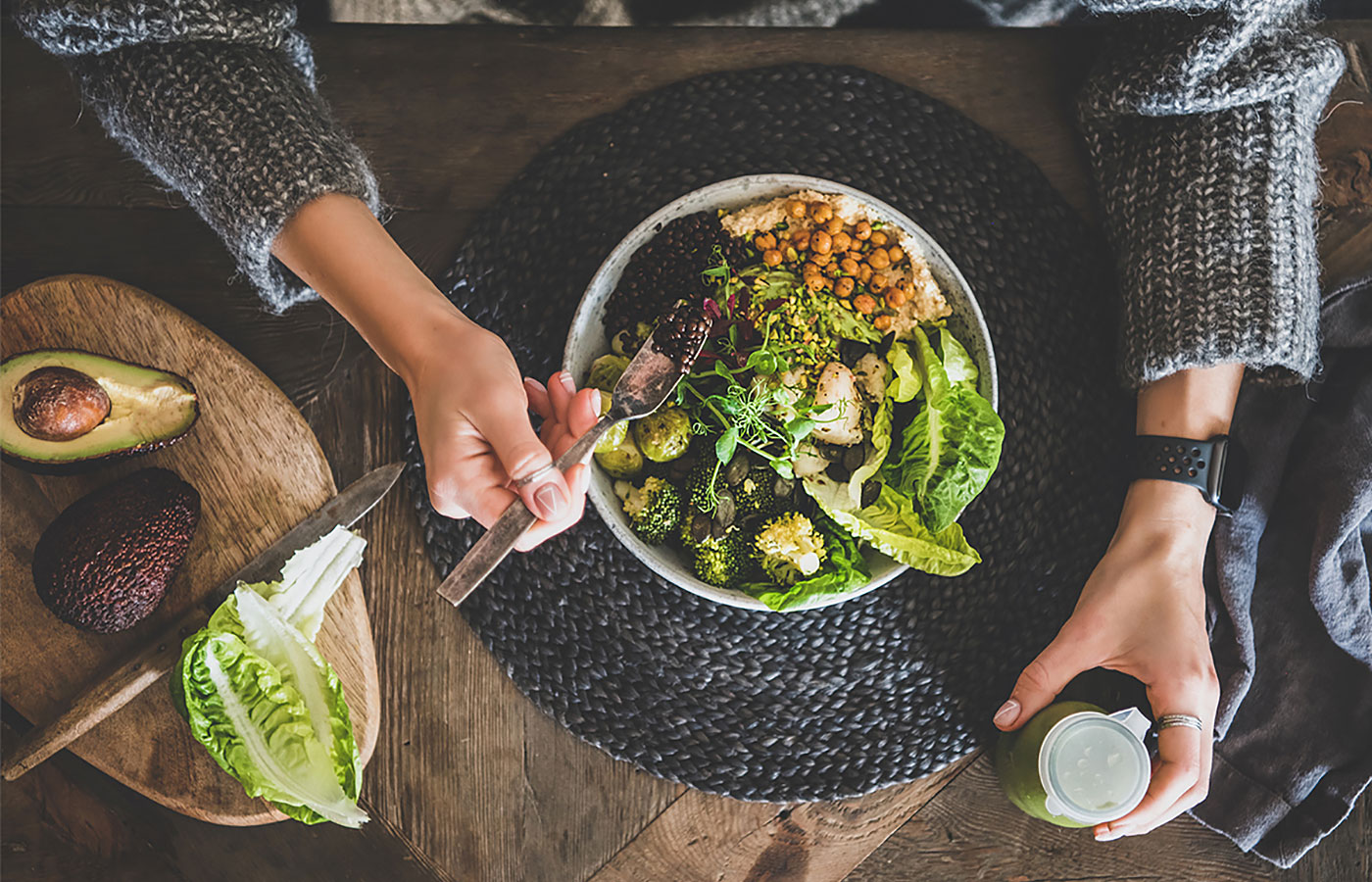
Dietary Discoveries
WITH SMALL INTESTINAL
BACTERIAL BALANCE
SIBO: A Complex Puzzle with Emerging Insights
Small intestinal bacterial overgrowth (SIBO) remains an enigmatic and relatively unexplored realm within the field of gastroenterology. This is particularly true when it comes to breaking new ground in dietary insights. Nevertheless, recent years have seen the emergence of exciting advancements.
Moderate Alcohol: A Hidden Culprit in SIBO
While the high rates of SIBO among the alcoholic population are well-known, a surprising revelation is that even moderate alcohol consumption poses a strong risk factor for SIBO.
Research on heavy alcohol consumption indicates that drinking can harm the small intestine's defense mechanisms through direct mucosal damage, while also influencing intestinal transit time and other mechanisms. Alcohol has also been seen to feed gram-negative bacteria. SIBO has been seen to potentially damage the liver in animal studies, which could affect alcohol processing.
The Art of Eating: Meal Regularity, Timing & Frequency
Eating a clean diet replete with whole, nutrient-dense foods is the cornerstone for managing SIBO, and laying the foundation for long-term health. Nutrient-rich foods aid in the healing process and also help with proper digestion, supporting regular bowel movements and fostering healthy gut flora.
The management of SIBO through meal regularity, timing, and frequency is a nuanced and individualized approach. Aligning meal schedules with the body’s natural digesting rhythms and focusing on less frequent meals can promote healthy gut motility, clearing the small intestine’s contents, and maintaining a balanced microbial environment.
The Organic & Gluten-Free Debate: What Works for SIBO?
Organic foods may be an imperative choice due to the negative effects of pesticides on microbial balance in the gut. In addition, a gluten-free diet can induce moderate changes in the intestinal microbiome, even in healthy adults. A gluten-free diet has been shown to reduce bloating, along with fasting and postprandial hydrogen exhalation.
Hydrogen exhalation refers to the release of hydrogen gas through the breath after eating a meal, which is associated with the fermentation of undigested carbohydrates by bacteria in the gastrointestinal tract. During fermentation, hydrogen gas is produced as a byproduct, along with other gases such as methane and carbon dioxide. Because of this phenomenon, reducing carbohydrates prone to fermentation can lessen symptoms such as bloating and discomfort.
While definitive conclusions about specific diets remain elusive, an overall balanced nutrition regimen with nutrient-rich foods and certain herbs/nutraceuticals has proven vital for long-term gut health. Fermented foods such as sauerkraut, kimchi and plain yogurt provide probiotics that promote the growth of beneficial bacteria and support digestive health. Leafy green vegetables, berries, nuts and fatty fish help support healthy inflammatory pathways and add important nutrients to promote bacterial balance by aiding overall gut health.
Herbal Healing: A Natural Approach to SIBO
Herbal strategies offer promising avenues to curb pathogenic bacteria, reduce overgrowth, and rejuvenate gut balance in SIBO. From oil of oregano's potent microbial-inhibiting properties to berberine extracts, thymus vulgaris, and wormwood, the botanical world is rich with aids to support a healthy microbial balance in the gut.
|
At Biotics Research®, we combine the best of science and nature in order to develop supplements that are bioavailable, reliable and safe. This is done by passionately searching for holistic interventions and the highest quality raw material ingredients around the world. |